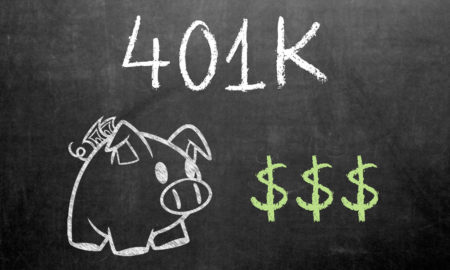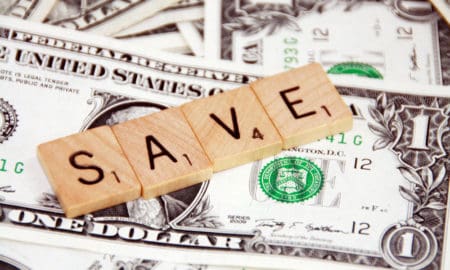

My wife is a licensed real estate agent. While this isn’t a full-time job, she occasionally helps friends and relatives with housing transactions.
I often join the house hunting trips and pay close attention. I’m always curious to learn what people desire in a house and neighborhood.
Most transactions turn out the same. The clients pay top dollar (bidding wars are common) for a shiny, new (or almost new) home in a boring subdivision.
The older homes, no matter how great the neighborhood, are dismissed. And no one seems to want a home that needs a little work, even if it could be purchased at discount.
The path of least resistance and convenience is a tempting one. However, there is a tradeoff for it too. Typical people make typical choices which end in typical outcomes:
Work 40 hours per week, spend your free time in front of the TV and retire to a place with warm weather when you’re 67.
*yawn* I encourage you to think about life’s important decisions in a way contrary to the herd. You may just get wealthy while you’re at it.
Trade Ugly Homes for Beautiful Money
At 42, my net worth hovers around $1,500,000. The core of my nest egg was built with real estate.
At a young age, my wife and I learned that if you are willing to put a little work into an ugly home, there is money to be made in flipping.
When we bought our current home 3 years ago, the housing market was already red hot. A “For Sale” sign would sprout and within 24 hours, the sellers were entertaining multiple offers. Then, we noticed a home in the same area that had been on the market for 40 days.
One tour of the home showed us why. The toilet was blue and the fixtures were 1970s style gold. The kitchen was ugly and the grass was dead. The house had been unloved. No one wanted this thing. Except for us.
We bought the home for 10% under asking price and went to work on it immediately. The two bedroom, one bathroom home we bought now has four bedrooms and three bathrooms. With less than $100,000 out of pocket into it, our $175,000 home is now worth north of $400,000.

Bottom line: I fully admit that my homes were big projects. I sacrificed many Saturdays to home improvement projects. At times, it was stressful and trying. No one wants to live in a construction zone.
However, you don’t have to gut a home like we did. There are all levels of rehab. You don’t have to tear out kitchens or remodel bathrooms. Sometimes, just a new coat of paint or fresh landscaping will do the trick.
Car Craziness
“I want a new Prius!” one of my relatives enthusiastically exclaimed at a recent family gathering.
“What’s wrong with your current one?” I asked.
“Nothing. Toyota just released a new model and I like the way it looks. I’m going to run the numbers to see if I can qualify for a loan.” It turned out that she didn’t qualify, so no new Prius for my relative, but it was for her own good.
Cars have come a long way in the past couple of decades. Their bodies don’t rust in 10 years. With oil changes and other, less frequent maintenance, a modern engine will easily go for 200,000 trouble-free miles. The average person puts 12,000 miles a year on a car, so it should last at least 16 years, but in most cases, much longer.
Why do we trade them in on average after only 7 years? Perhaps it’s because most folks don’t understand the future value of money.
I like to use my own poor decision as an example. I purchased a new, shiny orange Honda Element for about $20,000 way back in 2003. It was my first new car and I was intoxicated by the toxic new car smell. I didn’t really need the car, but I liked the styling and versatility. Silly me. The big question is:
How much would that $20,000 be worth if I had invested it?
I’ll assume the money was put into an S&P 500 index fund. This is a wise investment and a good choice for most folks. Heck, Warren Buffett even recommends it.

1$ turns into $2.61. My $20,000 would have turned into $52,200. That hurts. I still have that Element, but it it only worth about $4,000 now. I wish I had the other $48,200.
The $52,200 is amazing considering one of the greatest economic downturns the modern world has ever seen took place since then. If the Great Recession had never happened, the $50,000 may have been closer to $100,000. And this is only looking back at the last 13 years.
Over the next 40-60 years that I have left to live, my $20,000 Element will cost me hundreds of thousands of dollars.
Bottom line: Everyone smiles when a friend gets a new car:
Nice work Bob, high-five!
However, buying a new vehicle is an expensive mistake. Keep your boring old one well maintained and drive it until the wheels fall off.
If you need a car, go for a used one where someone else has taken the depreciation hit. Forget what the Joneses think.
My anesthesiologist friend, the Physician on Fire (PoF), drives a Chevy HHR. The PoF makes more money than you and if a car like an HHR is good enough for him, it’s good enough for you.
Jobs
At the same family reunion, a 16 year old relative was talking about what she wanted to do with her life:
I don’t want to go into computers because it sounds boring. It doesn’t excite me.
Unfortunately, her view is typical. I’m fascinated by what young folks choose to do with their lives, so at gatherings, I’m the crazy relative who interrogates them about their future plans. Some responses:
I like acting, so I’m going for theater arts
History!
French and International Business
Before you jump all over me, let me back up a second. If you’re a resourceful individual who is willing to work hard, you can be successful no matter what you study. It also helps if your parents have connections.
However, why not stack the cards in your favor by focusing on a career where recruiters will beg you to come in for an interview with promises of six-figure incomes and signing bonuses?
My young relative is worried that a career in technology doesn’t excite her. I told her that struggling with money can also be exciting.
Bottom line: Focus on earning more. Frugality is a powerful tool, but you can only cut expenses so much. If life is a struggle, change your path. Gone are the times where you have to go back to school for another degree to change jobs. Good computer positions can be yours in months if you can complete a boot camp. Or take classes online for free.
If computers really aren’t your cup of tea, I have great news for you: you live in a gig economy where the internet is teeming with weekend jobs.
Drive for Uber. Rent a room out with Airbnb. Rent your car out with Turo.
Forget the Herd
It’s easy to get stuck in a rut. Join the meandering herd that is the normal path and before you know it, you’ll be 44 working for an insecure boss who checks what time you come in and leave every day.
After working 9 hours and sitting in traffic for 2, you’ll go home to two screaming children, two car payments and a $350,000 mortgage. No thanks.
Consider life differently than your fellow man or woman. It doesn’t take much effort to turn the money tide in your favor. A couple smart choices early on will turn your nest egg into a tsunami in a couple decades.
Perhaps your snooty neighbor will turn up his nose at your 10 year old Honda Accord, but he’ll also be working until he’s 72. Don’t forget to remind Mr. Snooty Pants that his fancy sedan will be worth the same as your Accord in a decade or so: $0.
It takes courage, determination and hard work to make your own path, but the potential rewards are incredible.
Two roads diverged in a wood, and I took the one less traveled by – And that has made all the difference. -Robert Frost
























3 Comments